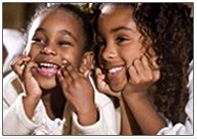Is your child becoming increasingly aggressive?
Is violent behavior a problem in your family?
How can you improve your child’s social skills?
The best way to prevent violent behavior is to give your child a stable, secure home life with firm, loving discipline and full-time supervision during the toddler and preschool years. Everyone who cares for your child should agree on the rules he’s expected to observe as well as the response to use if he disobeys. Whenever he breaks an important rule, he should be reprimanded immediately so that he understands exactly what he’s done wrong.
Your youngster has little natural self-control. He needs you to teach him not to kick, hit, or bite when he is angry, but instead to express his feelings through words. It’s important for him to learn the difference between real and imagined insults, and between appropriately standing up for his rights and attacking out of anger.
The best way to teach these lessons is to supervise your child carefully when he’s involved in disputes with his playmates. As long as a disagreement is minor, you can keep your distance and let the youngsters solve it on their own. However, you must intervene when children get into a physical fight which continues even after they’re told to stop, or when one child seems to be in an uncontrollable rage and is assaulting or biting the other. Pull the children apart and keep them separate until they have calmed down. If the fight is extremely violent, you may have to end the play session. Make it clear that it doesn’t matter who “started it.” There is no excuse for trying to hurt each other.
Help your child find ways to deal with his anger without resorting to violence. Teach him to say no in a firm tone of voice, to turn his back, or to find compromises instead of fighting with his body. Through example, teach him that settling differences with words is more effective and more civilized – than with physical violence. Praise him and tell him how “grown-up” he is acting whenever he uses these tactics instead of hitting, kicking, or biting.
Always watch your own behavior around your child. One of the best ways to teach him nonviolence is to control your own temper. If you express your anger in quiet, peaceful ways, he probably will follow your example. If you must punish him, do not feel guilty about it and certainly don’t apologize. If he senses your mixed feelings, he may convince himself that he was in the right all along and you are the “bad” one. While punishing your child is never pleasant, it is a necessary part of parenthood and there is no reason to feel guilty about it. Your child needs to understand when he is in the wrong so that he will take responsibility for his actions and be willing to accept the consequences.






Speak Your Mind